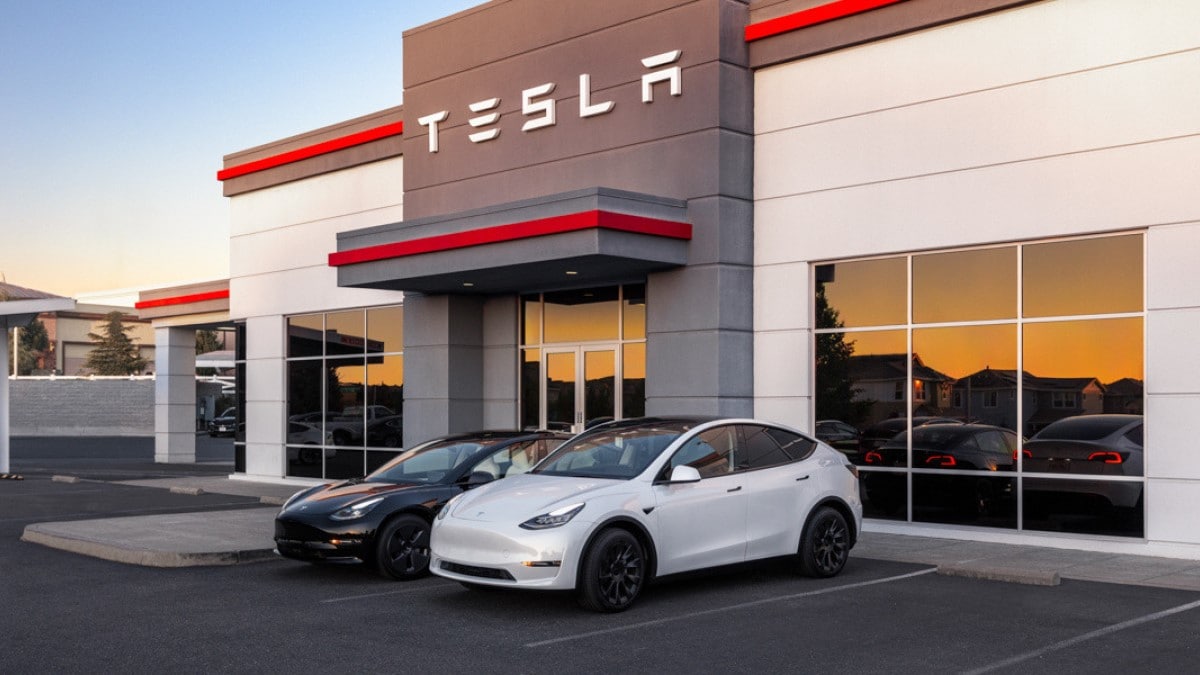For weeks, Tesla fans and investors have had one critical question for the company – is there, or is there not, an inexpensive “Model 2” coming?
Yesterday, the company used its first quarter earnings call to further confuse the matter.
Tesla reported a 55% decline in profit on yesterday’s call – its biggest year-over-year earnings slide since 2012. The mark was worse than analysts had expected, and most predictions for the quarter were dire.
But Tesla’s stock price rallied on news that the company would, in the words of CEO Elon Musk, “accelerate the launch of new models ahead,” including “more affordable models.”
Musk’s meaning is less than clear.
The Planned/Not Planned $25,000 Tesla
Tesla has long followed a growth strategy of moving steadily down the market, producing less expensive cars over time. It introduced itself to the broad automotive market with more expensive, lower-volume cars like the Model S luxury sedan and Model X luxury SUV.
Technology created for those cars trickled down to the less-expensive Model 3 sedan and Model Y SUV, which sold in much greater numbers. The Model Y briefly became Earth’s best-selling car at one point last year.
The next step in the strategy, Musk had long said, would be the presumed “Model 2,” a small car with a target price of around $25,000. It would be built on an entirely new platform. That price would make it compete for the title of America’s least-expensive EV. At one point, Musk told investors Tesla could produce 20 million cars a year – more than ten times then-current production levels – once it debuted.
Then, he reportedly canceled the new EV. Investors and observers were stunned by a Reuters report in early April claiming that Musk had canceled plans for the Model 2 in favor of a plan to produce a self-driving “robotaxi” – a business model other tech companies have struggled with.
Musk disputed the report, but further reporting by other media outlets seemed to back it up.
Ambiguous Answers to Direct Questions
Investors headed into yesterday’s earnings call looking for specific answers on the Model 2 plan. They didn’t get them.
Musk indicated that Tesla still plans to produce more affordable models in “early 2025 if not late this year.” But he left questions about what “more affordable models” might mean. He said they would “use aspects of the next-generation platform as well as aspects of our current platforms,” as though they would incorporate lessons from Model 2 research but share the platform that underlies the Model 3 and Y.
“We’ll be able to produce on the same manufacturing lines as our current vehicle lineup,” he continued. That suggests the Model 2 platform won’t result in a car for sale to consumers.
Callers pressed him for specifics, but he declined to provide them.
One asked for “an official announcement of the timeline for the $25,000 vehicle.”
Musk responded by saying, “Really, the way to think of Tesla is almost entirely in terms of solving autonomy and being able to turn on that autonomy for a gigantic fleet.”
Another asked, “Are these like tweaks on existing models, given that they’re going to be running on the same lines? Or are these like new models?”
Musk replied, “I think we’ve said all we will on that front.”
That response got an audible “wow” from a veteran tech reporter in the audience.
What It May Mean – Fewer Cars, More Automation
Tesla doesn’t operate a public relations department or respond to reporters’ questions. So these monthly earnings calls, and Musk’s statements on his social media site X (formerly Twitter) are frequently all analysts have to go on in understanding Tesla strategy.
Increasingly, a pattern is emerging. Musk deflects questions about future cars and focuses on autonomous driving technology instead.
Musk answered Model 2 questions with details about the company’s efforts to build an autonomous cab. He promised to unveil more details on a “Cybercab” in early August. He showed screenshots of an Uber-like app customers might someday use to summon a driverless Tesla.
Musk told investors to think of the company as “a combination of Airbnb and Uber meaning that there will be some number of cars that Tesla owns itself and operates in the fleet.” But he also hinted that private Tesla owners might also allow their cars to serve as taxis when they weren’t using them, saying, “There’ll be a bunch of cars where they’re owned by the end user.”
He discussed attempts to license the company’s self-driving technology to other automakers.
Tesla still reveals new cars, but they are attention-getting products never meant to sell in huge numbers.
The most recent new product the company unveiled was its Cybertruck – a conversation starter but a low-volume car. Its next planned release is the Roadster, a 2-door sports car with a reported quarter-million-dollar price and buzzy features like optional rocket boosters. That’s not the sort of thing that will ever sell in Model-Y-style volume.
Tesla, he seemed to suggest, is no longer truly an automaker. “If you value Tesla as just like an auto company, you just have to — fundamentally, it’s just the wrong framework,” he said.





